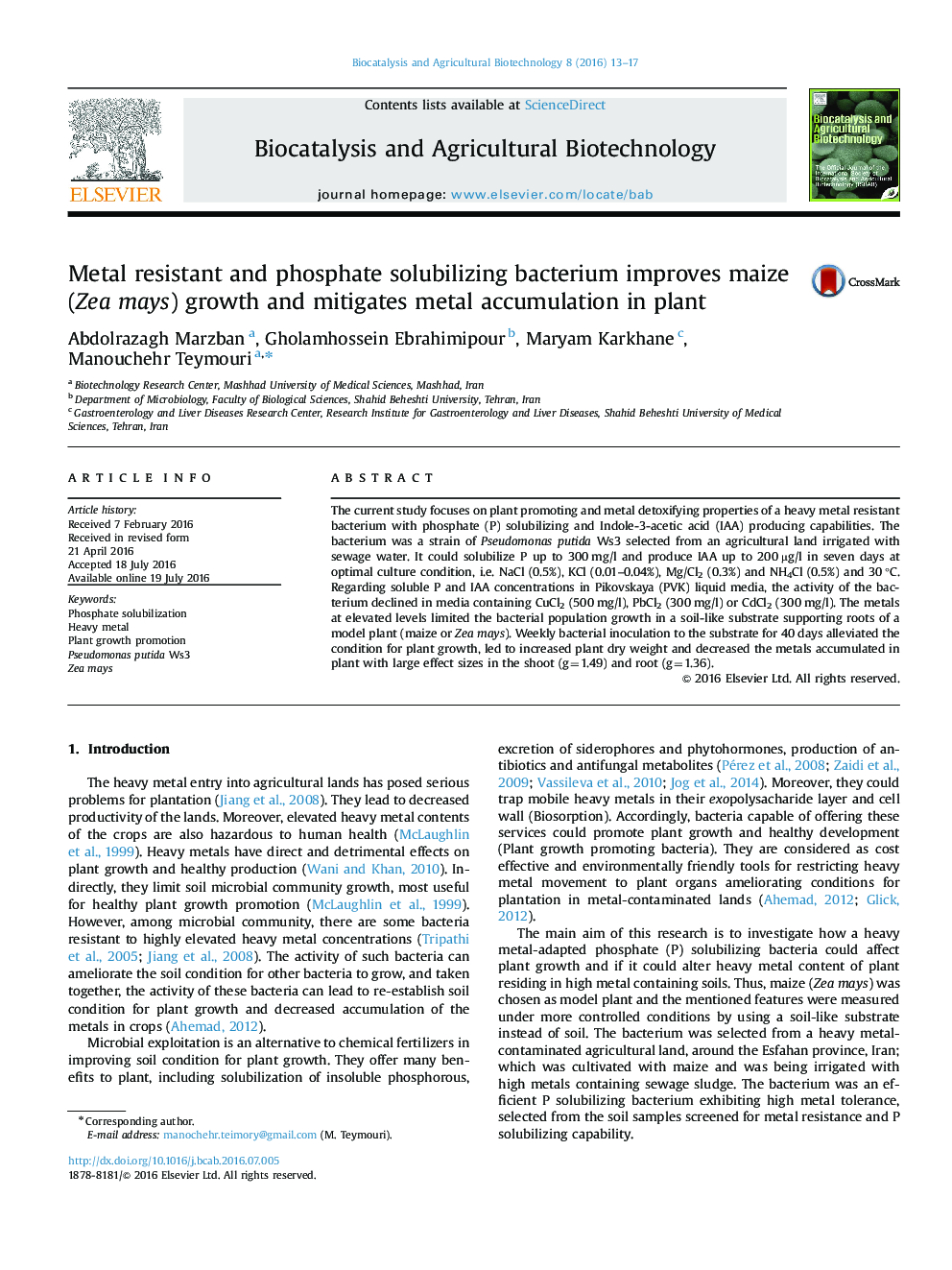| Article ID | Journal | Published Year | Pages | File Type |
|---|---|---|---|---|
| 2075270 | Biocatalysis and Agricultural Biotechnology | 2016 | 5 Pages |
The current study focuses on plant promoting and metal detoxifying properties of a heavy metal resistant bacterium with phosphate (P) solubilizing and Indole-3-acetic acid (IAA) producing capabilities. The bacterium was a strain of Pseudomonas putida Ws3 selected from an agricultural land irrigated with sewage water. It could solubilize P up to 300 mg/l and produce IAA up to 200 µg/l in seven days at optimal culture condition, i.e. NaCl (0.5%), KCl (0.01–0.04%), Mg/Cl2 (0.3%) and NH4Cl (0.5%) and 30 °C. Regarding soluble P and IAA concentrations in Pikovskaya (PVK) liquid media, the activity of the bacterium declined in media containing CuCl2 (500 mg/l), PbCl2 (300 mg/l) or CdCl2 (300 mg/l). The metals at elevated levels limited the bacterial population growth in a soil-like substrate supporting roots of a model plant (maize or Zea mays). Weekly bacterial inoculation to the substrate for 40 days alleviated the condition for plant growth, led to increased plant dry weight and decreased the metals accumulated in plant with large effect sizes in the shoot (g=1.49) and root (g=1.36).
